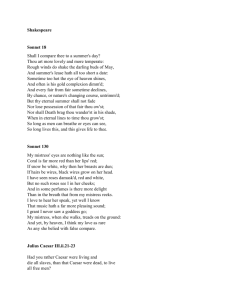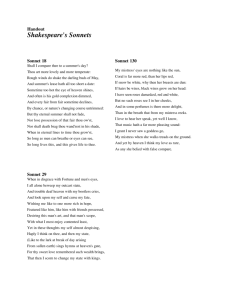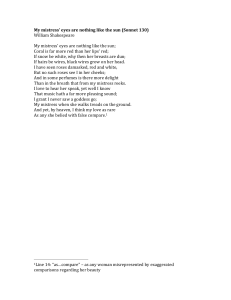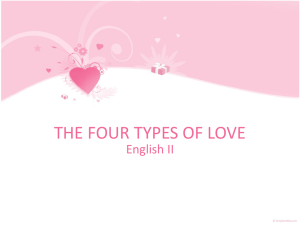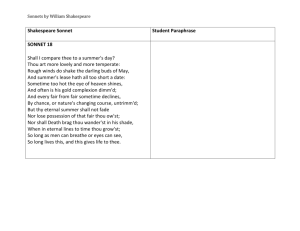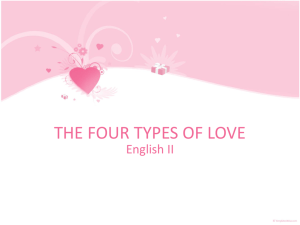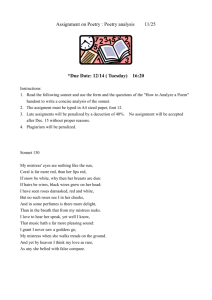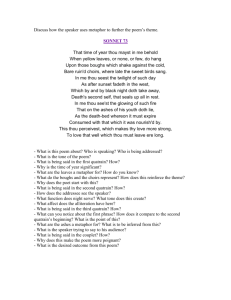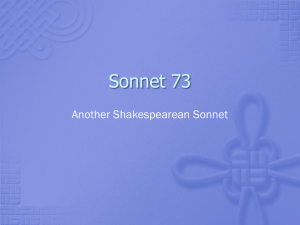130
advertisement
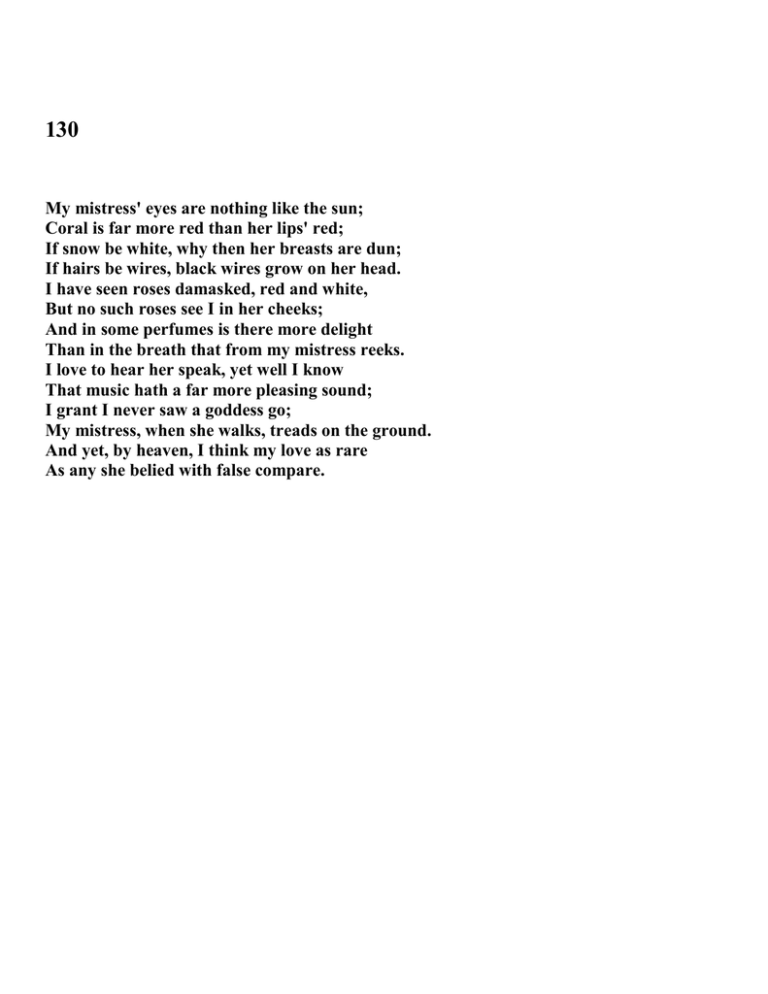
130 My mistress' eyes are nothing like the sun; Coral is far more red than her lips' red; If snow be white, why then her breasts are dun; If hairs be wires, black wires grow on her head. I have seen roses damasked, red and white, But no such roses see I in her cheeks; And in some perfumes is there more delight Than in the breath that from my mistress reeks. I love to hear her speak, yet well I know That music hath a far more pleasing sound; I grant I never saw a goddess go; My mistress, when she walks, treads on the ground. And yet, by heaven, I think my love as rare As any she belied with false compare. 18 Shall I compare thee to a Summer's day? Thou art more lovely and more temperate: Rough winds do shake the darling buds of May, And Summer's lease hath all too short a date: Sometime too hot the eye of heaven shines, And oft' is his gold complexion dimm'd; And every fair from fair sometime declines, By chance or nature's changing course untrimm'd: But thy eternal Summer shall not fade Nor lose possession of that fair thou owest; Nor shall Death brag thou wanderest in his shade, When in eternal lines to time thou growest: So long as men can breathe, or eyes can see, So long lives this, and this gives life to thee. Name:_________________________________________ Sonnet 130 1. What is the main point the speaker is trying to convey about his mistress through this poem? Use at least three details from the sonnet to support your answer. Sonnet 18 2. The speaker uses an extended metaphor about summer. What are some ideas/feelings/qualities that summer usually evokes or symbolizes? 3. The first two quatrains explain why the speaker will not compare his love to a summer’s day. Provide three reasons (in your words) that the speaker gives: 4. The third quatrain of the sonnet mentions that “Nor shall Death brag thou wanderest in his shade,/When in eternal lines to time thou growest”. What might the speaker (or the poet— HINT) mean by “eternal lines”? 5. What is the “this” the speaker refers to in the last couplet (it is mentioned in the previous quatrain)? Explain the meaning of the last two lines.
